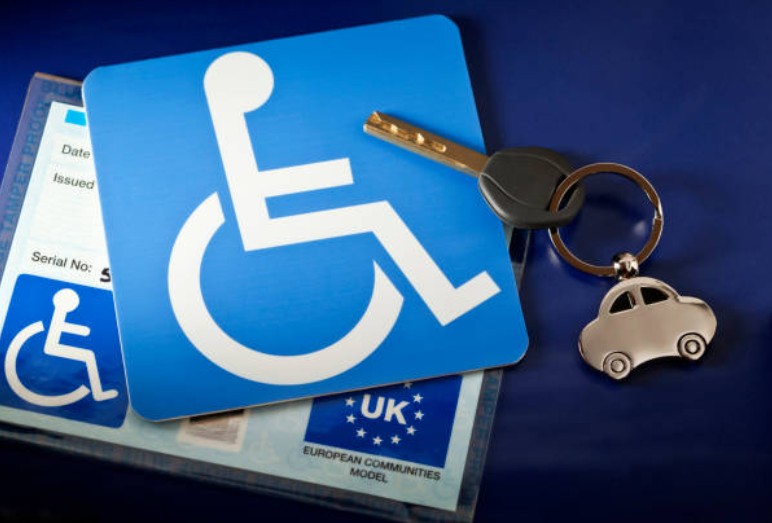Unlocking Hidden Help and Support Beyond the Basics in the UK
If you’ve recently been awarded standard rate PIP (Personal Independence Payment), it’s natural to feel a mixture of relief and uncertainty. Relief that your condition has finally been recognised, and uncertainty about what this means for your financial future.
But here’s the crucial truth: standard rate PIP is just the beginning. In the UK, it acts as a key to unlock a much wider network of support schemes, benefits, discounts, grants, and legal entitlements—many of which are unadvertised or difficult to find without expert advice.
This guide aims to give you everything you need to know in one place, whether you’re the person receiving PIP or you’re supporting someone who is. We’ll go deep into the entitlements you could claim, share real-life stories, and explore some of the less obvious ways PIP can improve your life.
What Is Standard Rate PIP and Why Does It Matter?
PIP is a non-means-tested benefit, meaning it’s not affected by your income or savings. Instead, it’s based purely on how your disability or health condition affects your ability to perform daily tasks or get around.
PIP is split into two components:
- Daily Living Component (for tasks like eating, bathing, dressing, managing medicines)
- Mobility Component (for walking or mentally navigating a journey)
Each of these has two rates:
- Standard Rate
- Enhanced Rate
While many think only the enhanced rate offers useful perks, standard rate PIP is highly powerful and can make you eligible for a long list of secondary entitlements—if you know what to look for.
Standard Rate PIP – What Else Can I Claim?
This is the heart of the matter. Let’s break it down into clear, actionable categories so you can maximise your support and entitlements.
1. Council Tax Reductions – Your Local Authority Might Owe You Hundreds
One of the most overlooked benefits of receiving standard PIP is a reduction in council tax, which can amount to hundreds of pounds annually.
Many local authorities offer substantial council tax support for those receiving any level of PIP, including:
- Up to 25%–100% reductions
- Disability Band Reductions if your home has been adapted for your needs
- Exemptions if you’re considered “severely mentally impaired” under legal definitions
Real-World Example:
Mark from Coventry was awarded standard rate PIP for long COVID symptoms. He applied for a local reduction and saved £604 per year. The council also refunded him for six months before he applied—money he had no idea he could claim.
How to Apply:
- Visit your local council’s website via GOV.UK
- Search for “council tax reduction” or “disability reduction”
- Submit your PIP award letter and, if applicable, evidence of home adaptations or medical need
This is free to apply for and can often be backdated.
2. Universal Credit Add-Ons – Don’t Leave Thousands Behind

Receiving PIP does not count as income under Universal Credit (UC) rules. But if you’re on UC and receiving PIP, you may be entitled to additional money each month through:
- Limited Capability for Work (LCW)
- Limited Capability for Work and Work-Related Activity (LCWRA)
These elements are assessed through a Work Capability Assessment, which takes into account your PIP status, medical records, and a functional assessment.
Why It Matters:
- LCWRA pays an additional £390.06 per month (2025)—over £4,600 per year tax-free.
- It also exempts you from job-search requirements.
Case Study:
Tamara, a part-time retail worker from Leeds, was unaware she could claim this. After mentioning her PIP award during a Jobcentre appointment, she was assessed and awarded LCWRA. Her Universal Credit increased by £91 per week, drastically improving her quality of life.
3. Blue Badge Parking Permit – Not Just for Enhanced Mobility
Many people wrongly assume the Blue Badge scheme is only available to those on enhanced mobility PIP. However, standard mobility recipients can qualify, especially if:
- You suffer from “overwhelming psychological distress” when travelling
- You are physically unable to walk long distances without pain or fatigue
- Your condition causes frequent falls or instability

Evidence That Helps:
- Letters from your GP or consultant
- A mobility diary showing daily walking limitations
- Photographs or video of mobility aids you use
- Testimony from a carer or family member
Local Authority Tip:
Different councils have different criteria. Always ask for a review if you’re refused the first time.
4. Carer’s Allowance – Even Standard Daily Living Qualifies You
If someone helps care for you for 35 hours or more per week, they may be eligible for Carer’s Allowance, which is currently worth £81.90 per week (2025).
This includes:
- Parents
- Spouses or partners
- Friends or neighbours
- Even teenage children (in some cases)
Why People Miss Out:
- The carer may not realise they qualify
- They think they must be professional carers (they don’t!)
- They don’t know that standard daily living PIP qualifies you
Real-Life Scenario:
Lisa in Brighton cares for her adult brother who has schizophrenia and receives standard daily living PIP. Lisa works part-time, earns under the threshold, and now receives £327.60 monthly, plus pension credits for her state retirement age.
5. Travel Discounts – Railcards, Bus Passes, and Taxi Help

There are multiple schemes you can access with PIP, especially if you’re unable to use public transport confidently or safely.
What You Can Get:
- Disabled Person’s Railcard: 1/3 off rail fares for you and a companion
- Free Bus Pass: From your local authority (especially in England, Wales, Scotland)
- Taxi Card Schemes: Subsidised taxi fares for people with disabilities
- London Freedom Pass: If you live in Greater London and meet disability criteria
Many of these applications are accepted with standard PIP if your mobility or mental health condition makes travelling independently difficult.
6. Access to Work – If You’re Employed or Self-Employed
Access to Work is a government scheme that funds practical support for people with disabilities in work.
This includes:
- Paid transport to and from work (if you can’t use public transport)
- Personal support workers
- Specialist equipment like adapted chairs, keyboards, or hearing aids
- Mental health support services, including coaching or therapy
Eligibility:
- Must be in paid work or have a confirmed job offer
- PIP strengthens your application as proof of disability
Case Insight:
Raj, a graphic designer in Manchester, received standard mobility PIP for PTSD. Access to Work funded weekly mental health sessions, noise-cancelling headphones, and a £600 ergonomic setup. He kept his job and improved his working environment dramatically.
7. NHS Low-Income Scheme – Save on Prescriptions, Dental & Optical

PIP alone doesn’t entitle you to free prescriptions unless you meet other criteria. But if you’re on a low income, you can apply for help through the NHS Low-Income Scheme (HC2 or HC3 certificate).
You can receive:
- Free NHS prescriptions
- Free dental care
- Free eye tests and glasses
- Travel refunds for hospital visits
Apply by completing an HC1 form – available online or from GP surgeries.
8. Energy Help – Warm Home Discount & Priority Support
Several UK-wide and local schemes offer help with energy costs for people on PIP:
- Warm Home Discount: £150 off your winter electricity bill
- Cold Weather Payments: Paid automatically during freezing weather (if receiving qualifying benefits)
- Priority Services Register: Extra support from utility companies during outages or emergencies
Bonus: Many energy companies (British Gas, Octopus, E.ON) also run hardship grants. If you’re in energy debt, receiving PIP may improve your chances of a successful application.
9. Charitable Grants – Unlocked by a PIP Letter
Charities across the UK offer one-off or ongoing grants to individuals with health conditions. They often request a PIP award letter as proof.
These grants can pay for:
- White goods (fridges, washing machines)
- Food or clothing vouchers
- Emergency rent or utility bills
- Family breaks and mobility aids
Where to Look:
- Turn2Us.org.uk, Glasspool Charity Trust, Family Fund (for parents of disabled children)
- Your local council’s Welfare Assistance Scheme
10. Discretionary Housing Payments – Support with Rent or Moving
If you claim Universal Credit (with the housing element) or Housing Benefit and still struggle with rent, you can apply for a Discretionary Housing Payment (DHP) from your local authority.
You can get help with:
- Short-term rent top-ups
- Deposits for new housing
- Moving costs due to disability
Tip:
Include your PIP letter and a breakdown of your income and expenses. Each council has limited funding—apply early in the financial year if possible.
Final Thought: Don’t Let Standard PIP Sit Quietly—Make It Work For You
Your PIP award is more than a benefit. It’s a declaration of your needs—and a passport to a wider network of support designed to help you live more independently, confidently, and with dignity.
By leveraging it wisely, you can:
- Reduce essential living costs
- Increase monthly income
- Improve access to health services and work
- Strengthen long-term financial stability

Leave a Reply